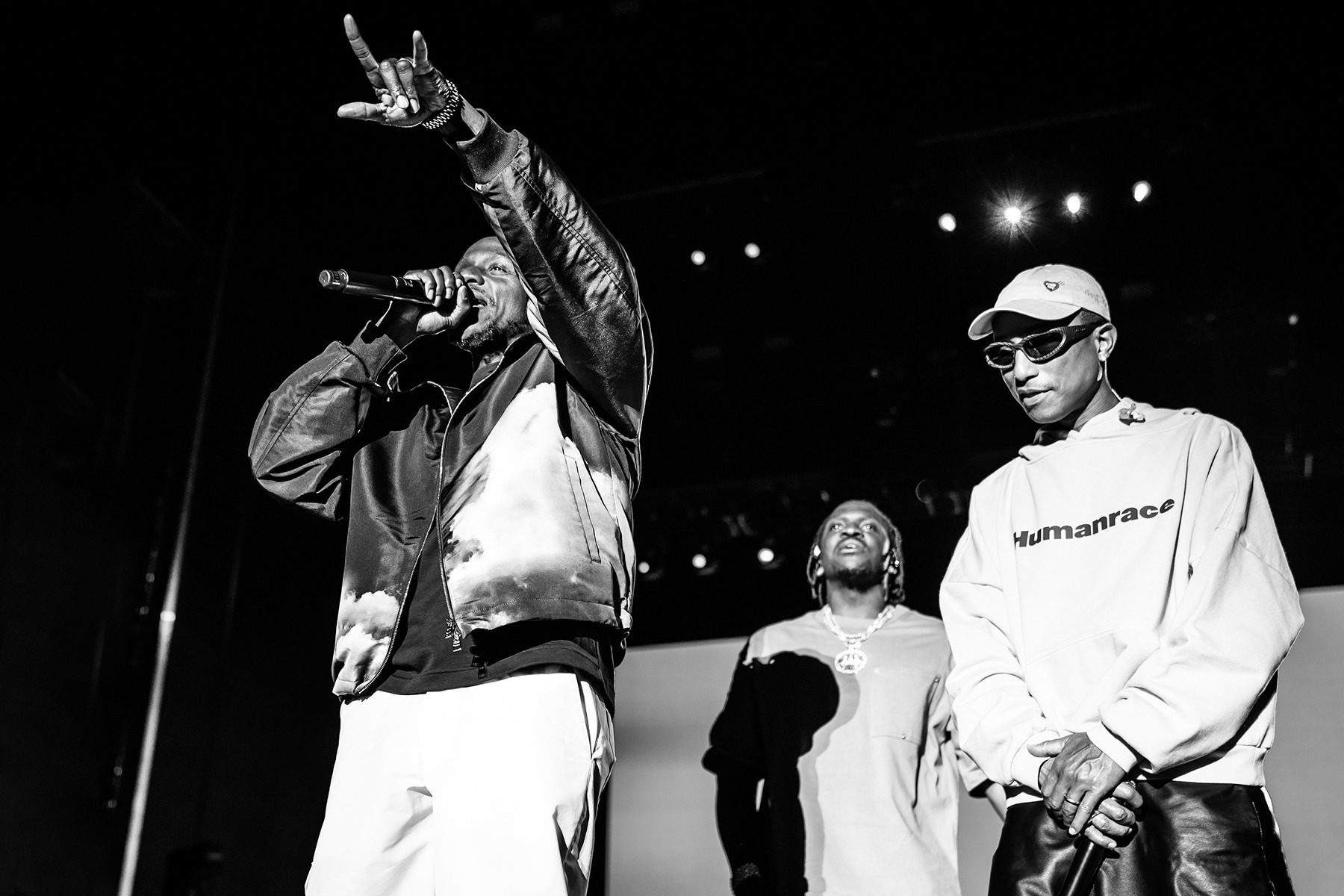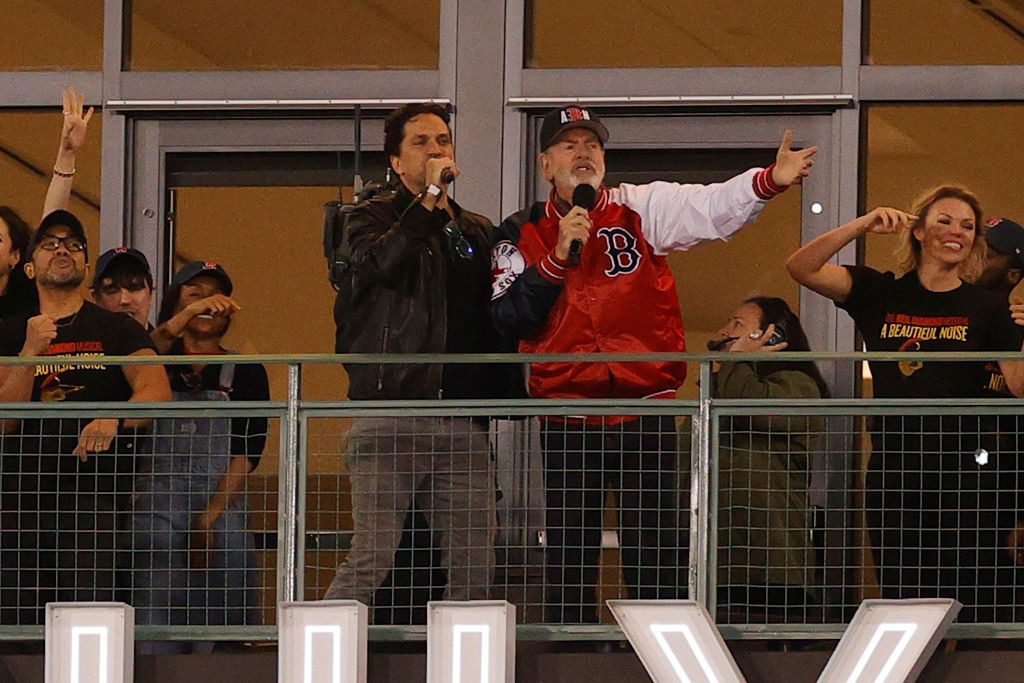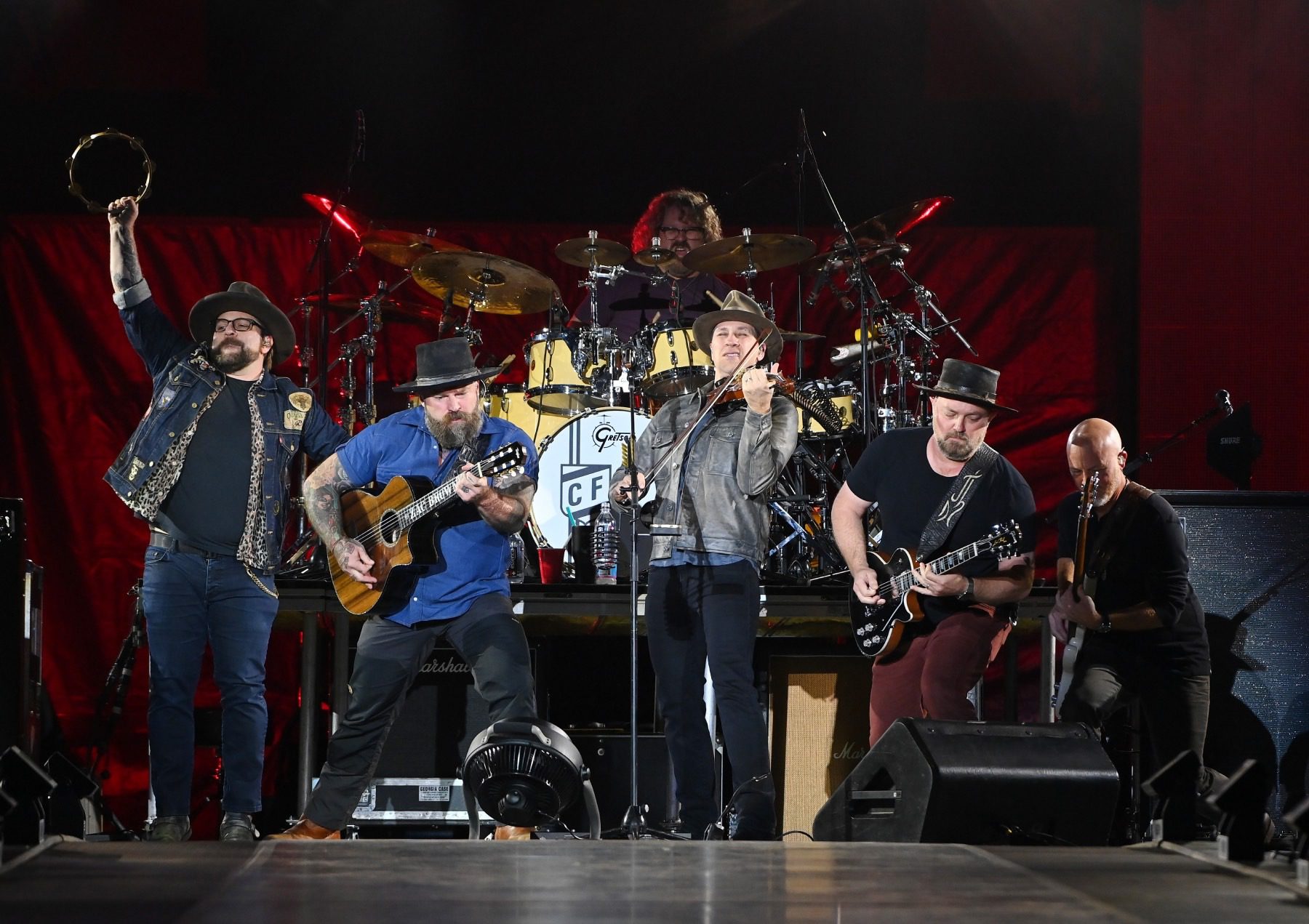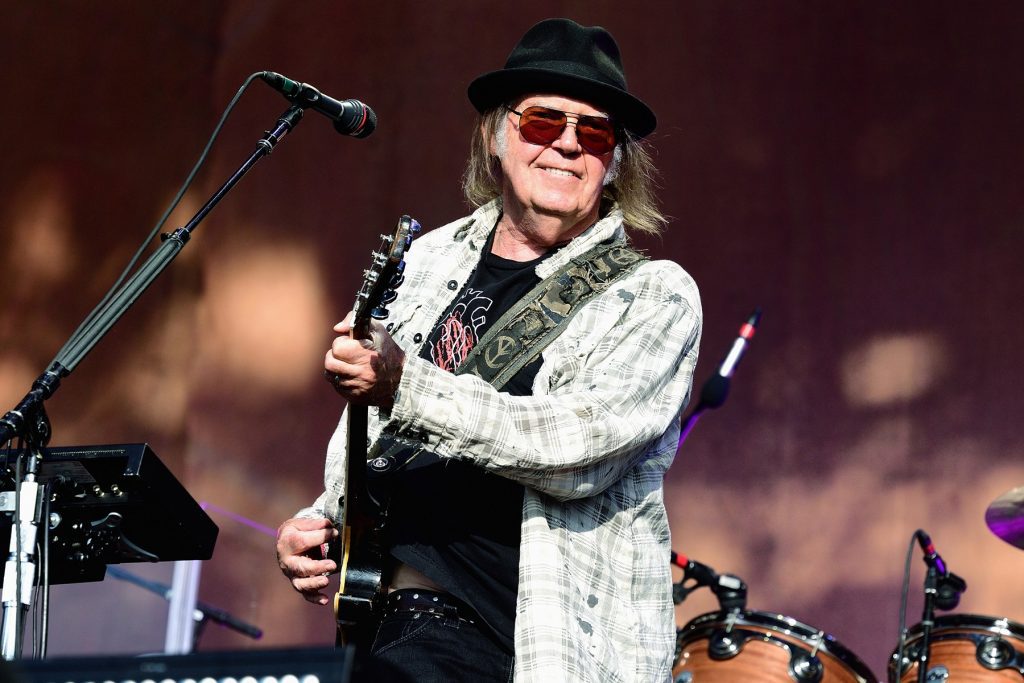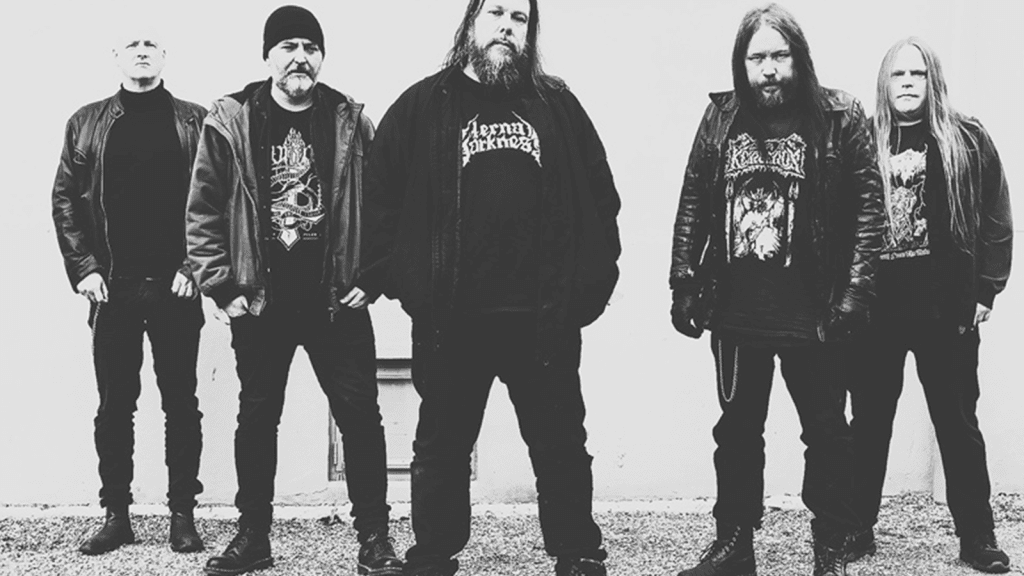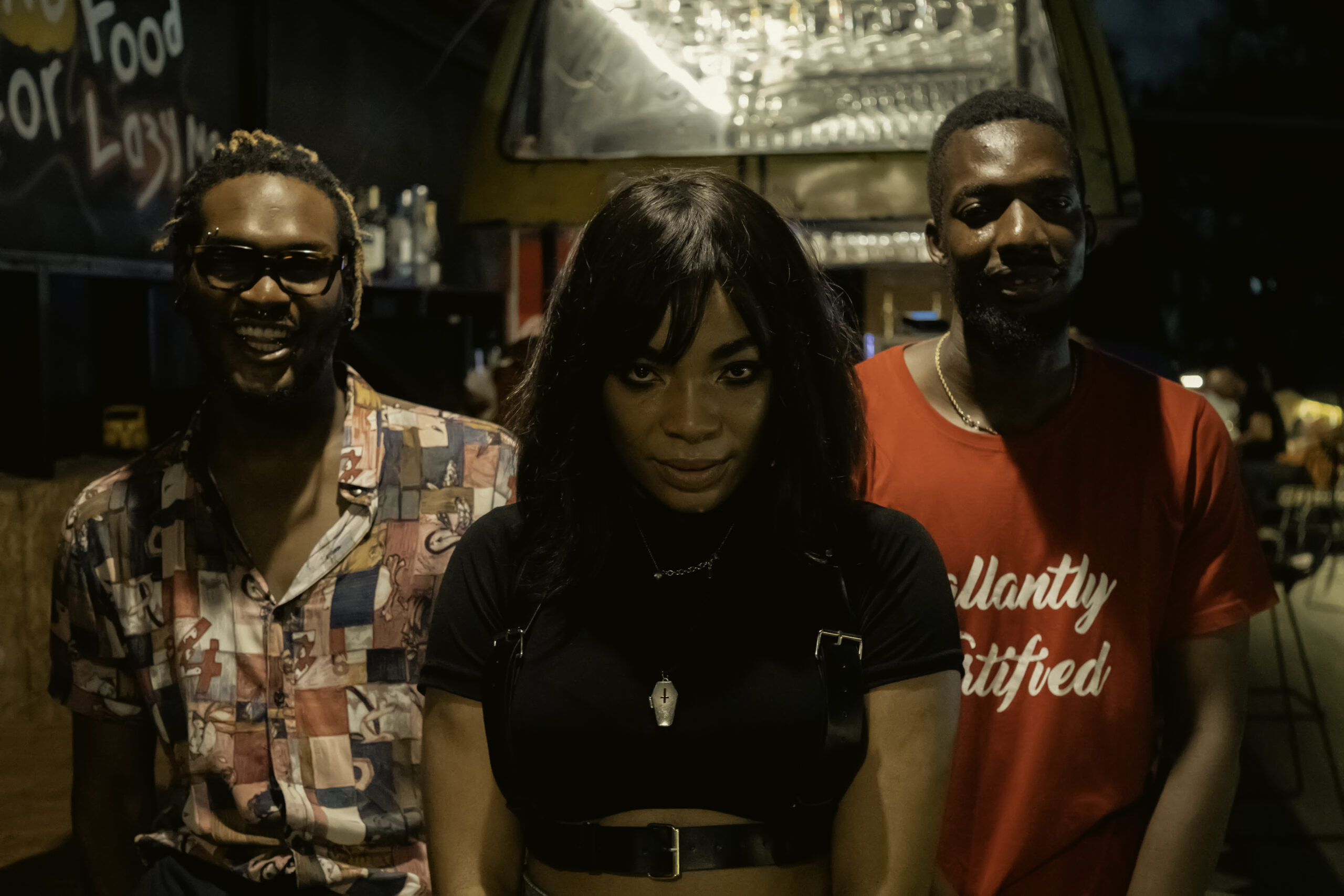
‘The Devil’s Music’ No More: Inside Nigeria’s Rock Resurgence
In 2013, Bianca Okorocha, a Nigerian artist who performs as ClayRocksU, received a DM from one of her Twitter followers. It was an invitation to Metal and Romance, a party in Lagos focusing on rock music — a genre long plagued by negative stereotypes in Nigeria. When she got there, she couldn’t believe what she saw: a whole community of fellow rock fans. “It was one of the happiest moments of my life,” she recalls.
Okorocha grew up listening to her father’s rock records, mostly by foreign bands. Through her teenage years and early adulthood, she immersed herself in punk fashion. But she noticed that people were always wary of her. “In church, I was always called to the pastor’s office for one complaint or the other,” she says. “People always gave me the side-eye and refused to approach me. So I didn’t expect to see so many people in tune with rock music.”
During Metal and Romance, she was shocked to hear Danjuma, lead singer of the metal band 1 Last Autograph, growl — something she’d never seen a Nigerian do. “When I saw them perform, I said to myself, ‘No way I’m not going to collaborate with these guys,’” she says. She’d later become friends with Danjuma, and perform and release music together with 1 Last Autograph, including the metal single “Down” in 2014. These days, they’re still playing together anywhere rock music can be found in Lagos and elsewhere in the country.
blogherads.adq.push(function () {
blogherads
.defineSlot( ‘medrec’, ‘gpt-dsk-tab-article-inbody1-uid0’ )
.setTargeting( ‘pos’, [“mid-article”,”mid”,”in-article1″,”mid-article1″] )
.setSubAdUnitPath(“music//article//inbody1”)
.addSize([[300,250],[620,350],[2,2],[3,3],[2,4],[4,2],[640,250]])
;
});
And they’re not the only artists leading a new wave of Nigerian rock. For the Love of Woman and Country, the latest album by Lagos’ Oma Mahmud, features both Afrobeats and punk-rock songs, along with songs that blend both genres. “There’s a lot of people that actually want to listen to [rock] songs like this,” Mahmud says. “Every single time I perform my music, it’s usually one of the highlights of the night. Mostly because most rock songs are people just venting their frustrations, and living in Nigeria, [it’s] a country where almost everybody’s frustrated.” His music speaks to Nigeria’s everyday problems, such as corruption, poor government, and a failing economy. Mahmud’s high-energy performances make his audiences feel connected to his music. “They immediately lock on to the music and feel like I’m their best friend,” he says, “like I’m telling their story.”
With artists like Burna Boy selling out Madison Square Garden and Wizkid and Davido doing the same at the 02 Arena, Nigerian music is becoming part of the Western pop mainstream. Could Nigerian rock be the next breakout sound? Okorocha thinks so. “If we can combine the rock that we love with Afrobeats, it may go a long way,” she says.
While rock music is often aligned with non-conformity and resistance, in a hyper-religious society like Nigeria, the genre is also branded as evil — or even associated with the occult. “Most people just think rock fans are listening to something demonic,” says Deoye Falade, who started listening to rock and metal in the mid-Nineties and now attends rock festivals and meetups in Lagos. “The kindest reactions I often get is that this is noise.” But, he says, he no longer cares. “When you like something and you understand it, you just enjoy it.”
He recalls a video of a Nigerian wedding that trended on Twitter in 2018, which featured the couple and their guests headbanging to System of a Down’s “Toxicity.” Some viewers couldn’t understand why Nigerians were partying to rock while dressed in agbada. “But you don’t have to paint your faces or rock the fashion before you like rock music,” Falade says.
A 26-year-old Lagos-based graphic artist going by the name of Queen, who has loved punk and metal since she was 13, says she felt shunned by her peers for listening to music from her favorite bands Bring Me the Horizon and Asking Alexandria. “People were wary of talking to me, and I struggled to make friends,” she recalls. “Once I started rocking and nodding my head, my roommates would say ‘the spirit’ had possessed me, which is weird because even the Christian music they listened to is pretty much rock music — just a softer kind.”
blogherads.adq.push(function () {
blogherads
.defineSlot( ‘medrec’, ‘gpt-dsk-tab-article-inbody2-uid1’ )
.setTargeting( ‘pos’, [“mid-article2″,”mid”,”in-article2″,”mid-article”] )
.setSubAdUnitPath(“music//article//inbody2”)
.addSize([[300,250],[300,251],[620,350],[2,4],[4,2],[3,3],[2,2]])
.setLazyLoadMultiplier(2)
;
});
But rock music wasn’t always perceived like this in Nigeria. In the 1970s, after the Nigerian Civil War, and as the country was experiencing an economic boom fueled by the discovery of crude oil, rock bands like Ofo and the Black Company, War-Head Constriction, the Hykkers, the Funkees, and the Lijadu Sisters graced the airwaves with psychedelic rock and funk that captured a distinctly Nigerian sound. These artists chronicled the evils of the civil war, and Nigerians reveled in a renewed sense of optimism that turbocharged the growth of the nation’s music industry. But leftover war trauma and unresolved tensions got swept under the rug — along with Nigerian rock.
Music historian and researcher Uchenna Ikonne, who spearheaded the two-volume compilation Wake Up You! The Rise and Fall of Nigerian Rock 1972-1977, says that rock’s youth appeal in Nigeria — which set it apart from the then more popular genre of juju — ultimately hurt the genre. “In Nigeria, [young people] have the least amount of disposable income, compared with the West where teenagers have jobs and can spend money on entertainment, buy records, and support artists,” he explains. “Teenagers [have never really had] jobs in Nigeria, and the ones that do are doing it to help support family. So rock music had a niche culture that had a hard time sustaining itself, as opposed to juju artists like King Sunny Ade and Ebenezer Obey who would make entire albums praising the richest aristocrats in the society. Those social elites would in turn attend their performances and shower these musicians with their money. … So while juju artists were making money hand over fists, rock artists were struggling.”
Ikonne also draws distinctions between Nigerian rock artists and the country’s most recognizable musical icon, Fela Kuti. On one hand, Fela Kuti’s Afrobeat sound shares stylistic similarities with Nigerian rock: percussive rhythms, and grungy electric guitar and organ work. (Compare the solos in “Ije Udo,” a track by Seventies Nigerian rockers Magnificent Zenians, for example, with Fela Kuti’s “Shakara.”) But, Ikonne says, “coming from a middle-class background, Fela was able to sidestep the struggles of rock artists at the time, as he had more resources.” In the end, his experimentation with Afrobeat, highlife, and rock, coupled with his larger-than-life personality, attracted more attention than his rock peers. “When [Fela] perfected his sound, it kind of upstaged and cannibalized the Nigerian rock scene,” says Ikonne.
blogherads.adq.push(function () {
blogherads
.defineSlot( ‘medrec’, ‘gpt-dsk-tab-inbodyX-uid2’ )
.setTargeting( ‘pos’, [“mid”,”mid-articleX”,”in-articleX”,”mid-article”] )
.setSubAdUnitPath(“music//article//inbodyX”)
.addSize([[300,250],[300,251],[3,3],[620,350],[2,2]])
.setLazyLoadMultiplier(2)
;
});
By the Eighties, an era that saw a growth of Christian revivalism in Nigeria, heavily influenced by the Moral Majority movement in the United States, rock music gained a bad rep in the country. Those prejudices have lingered for decades. Even in the 2000s, Dammy Lawal, who grew up listening to foreign rock artists and would go on to found the Metal and Romance fest, faced criticism for his taste in music. “Most of what I was hearing was that it’s the devil’s music,” he recalls.
In 2013, Lawal started a BlackBerry Messenger group where he and his friends could share rock playlists. “We had people sharing songs from Disturbed to Linkin Park, AC/DC to Creed, and so much more,” Lawal says.
The collective grew and transferred to WhatsApp. As each group reached its member limits on the app, newer offshoots were formed: RockazWorld, Rock Republik, Rock Haven. Eventually, Dammy decided to host an in-person event: Metal and Romance, where he also met ClayRocksU. “It was meant to be a meetup for sharing music playlists and dancing to our favorite songs, but by the next year, members started demanding that we include performances,” he says. “That was when we knew we had to host an actual show with a bigger venue. We were on to something.”
In October 2015, Rocktober Fest was born. Rock bands and artists visited from all over Africa to attend the show. More than 700 tickets were sold, and 15 performers delighted fans. The numbers grew exponentially over the next two years.
Lawal believes that African rock artists need to embrace their culture, rather than simply emulating Western sounds. “The best rock songs are the ones that have local flavor,” he says.
Oma Mahmud agrees, saying that Nigerian rock artists have to make rock music “native” to the country. “I can perform regular punk-rock songs, but I know who I expect to listen,” he says. “But to scale, the rock has to sound [more] Nigerian.” He says that his friends often play his songs in front of random people, “to see if it’ll draw a reaction.” It always does. “When you hear rock music that sounds like it comes from here,” he says, pointing to his heart, “it catches people’s attention.” In 2021, Afrofolk artist Johnny Drille featured a punk-rock song on his album Before We Fall Asleep — a politically satirical rock song in pidgin that involves growling — to positive reception.
blogherads.adq.push(function () {
blogherads
.defineSlot( ‘medrec’, ‘gpt-dsk-tab-inbodyX-uid3’ )
.setTargeting( ‘pos’, [“mid”,”mid-articleX”,”in-articleX”,”mid-article”] )
.setSubAdUnitPath(“music//article//inbodyX”)
.addSize([[300,250],[300,251],[3,3],[620,350],[2,2]])
.setLazyLoadMultiplier(2)
;
});
ClayRocksU excels at something similar, fusing Igbo language and local pidgin folk elements with punk rock. In February 2021, she released “Amin” with her band, the Misfits, creating a subgenre of sorts: “Afro-rock.” With the song — a feel-good tune sung in Nigerian pidgin and blending punk rock, Afrobeats, and folk — Okorocha and Co. are also attempting to challenge the negative stereotypes attached to rock music in this part of the world. The singer recalls performances where audience members were shocked to learn that what they were listening to was rock music. “Sometimes, people don’t care about genre,” she says. “They just like what they like.” The lyric video for “Amin” now has 12,000 views on YouTube, a feat she’s achieved organically.
“Not bad for a rock artist in a country where no one listens to rock, eh?” she asks.
